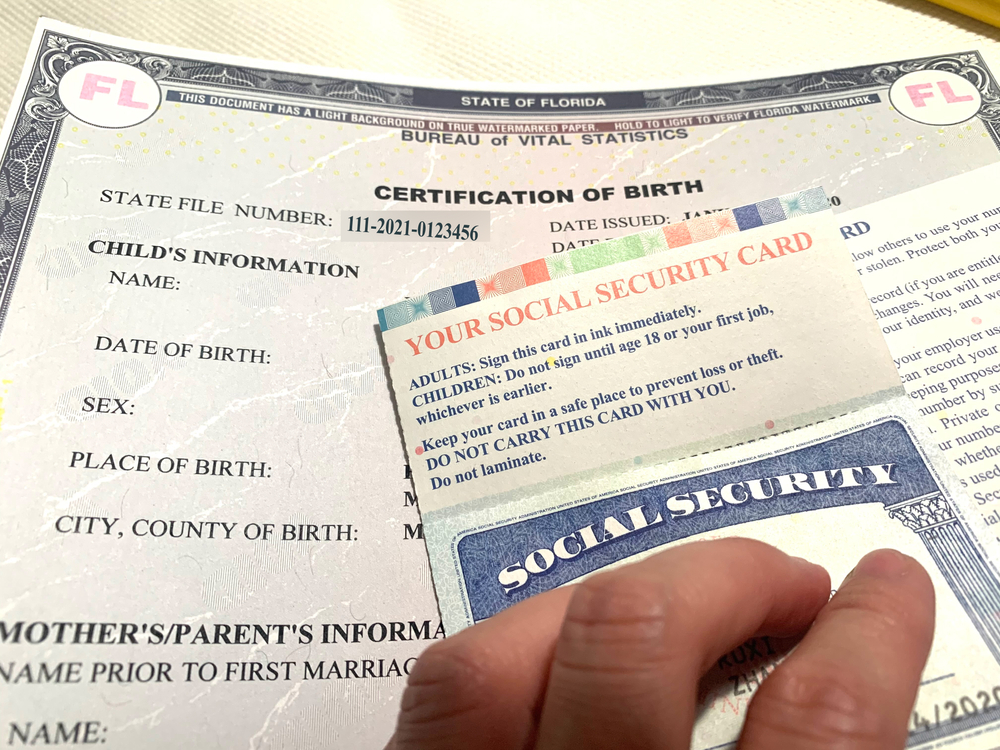Adoption records cover details about the parties to the adoption, social worker reports, and events or records specific to that adoption, such as medical records. Sometimes, it may be necessary to access this information, for instance, if the adoptee would like to connect with their birth parents or if they need medical history.
In Texas, there are different types of adoption records, and each record type has its own rules about who can access the information and under what circumstances. Understanding adoption records in Texas is essential for all adoptive parents, both in the short and long term.
The process can be emotional and complex, which is why it’s recommended to work through an adoption professional who can help navigate tricky legislation, such as working through court orders and accessing registries. Working with a newborn adoption agency in Texas can streamline this process, as they can offer guidance on how to preserve adoption records for future generations.
For families with questions, Angel Adoption offers resources and guidance to help you better understand the process and your options, from amending your child’s birth certificate to accessing medical information. Feel free to contact us for personalized guidance in your adoption journey.
Types of Adoption Records in Texas
Adoption records in Texas fall into several distinct categories. These can include:
Identifying and Non-Identifying Records
These court records provide adoptive parents with the history of the child. Participating in the Central Adoption Registry (CAR) is voluntary. An adult adoptee or birth relative has the right to refuse to participate in any registry. In the CAR, participants can find the names of birth parents, the baby, and, in some instances, other relatives, like biological siblings. This system provides simpler access to adoption information without applicants going through the court system.
This information can be accessed by birth parents, adoptees who were born and/or adopted in Texas, and biological siblings of adult adoptees. All requesting parties must be over the age of 18, and again, participation is voluntary.
Adoptive parents may also request non-identifying records. Non-identifying records contain sealed adoption information where certain information has been removed (like the identities of the birth parents or other family members).

Open and Closed Records
Texas is a closed record state when it comes to adoptions, which means that even if all parties agree to an open adoption, requesting full adoption records requires a court order.
Birth Records
There are different types of birth records you can request:
- A short-form birth record shows the individual’s current information and won’t reveal any changes.
- A long-form birth record includes any changes to the birth record. While it’s a comprehensive document, it may exclude the birth parents’ details if there’s no court order.
Health, Social, Education, and Genetic History Records (HSEGH)
In Texas, for adoptions that went through an existing child-placing agency, the agency is responsible for issuing non-identifying information from the HSEGH and other records concerning the birth family.
If the adoption was a non-relative private adoption or occurred through an adoption agency that is now closed, the adoptive parents or adult adoptee can submit a request to the Central Adoption Registry Request for Open Records form. Once received, Vital Statistics will return any available de-identified HSEGH information.
Texas Adoption Record Laws: The Basics
The Texas Family Code, Chapter 162, provides for certain parties to obtain access to adoption records, including:
- An adoptive parent
- A guardian, legal custodian, or conservator
- The adopted child, upon reaching adulthood
- An adult adoptee’s surviving spouse
- Descendants of the adoptee
The adoption agency must keep these reports for 99 years. Agencies need to preserve the information, and in the event of the agency’s closure, the documents need to go to the Department of Family and Protective Services.
Accessing Non-Identifying Information
Adoptive parents can request a de-identified copy of the adoption records. You can request these through your adoption agency or the Texas Department of State Health Services (DSHS) (VS) Central Adoption Registry.
Non-identifying information can give you a better understanding of your child’s biological history. Most adoption records in Texas allow access to certain non-identifying information about the birth parents, which can include:
- Race
- Ethnicity
- Physical features, such as eye color and hair color
- Ages
- Religion
- Medical history
- Education level
- Occupation
The report also reveals why the baby was placed for adoption, and whether the baby may have any siblings, plus the date and place of birth of the baby. These records won’t contain information that could enable adoptive parents to identify the birth parents or other biological family members.
Applicants can request the information from the Texas Department of State Health Services Vital Statistics by mail:
Texas DSHS – Vital Statistics
P.O. Box 12040
Austin, Texas 78711-2040
The request must include:
- A completed application form
- A $10 check or money order made payable to DSHS
- The applicant needs to provide the parents named on the birth certificate
- A valid government-issued ID
If a court order accompanies the request, it needs to include which records need to be released, the name of the person requesting the release, and to whom the records need to be released. The request takes around 25 to 30 business days.
The Central Adoption Registry
In Texas, adoption records are sealed, but in some instances, the parties to an adoption might want to make contact.
Some parties to an adoption (such as adoptees, birth parents, biological siblings, and adoptive parents) can have a variety of reasons to want to make contact. Adoptees may want more information about their medical history or cultural background. Birth parents or siblings might reach out to reconnect or share important life updates. In some cases, adoptive parents may initiate contact to provide or request critical health information.
The Central Registry is a key system for connecting parties in adoption records in Texas through mutual consent. The registration process for adoptees and birth relatives takes place through the Texas Department of State Health Services (DSHS) Vital Statistics Central Adoption Registry.
Registration is open to adoptees over the age of 18, biological siblings, birth parents, and adoptive parents. These applicants can submit their requests to:
VSS-CAR
DSHS MC 2096
P.O. Box 149347
Austin, Texas 78714-9347
Include the application form, a check or money order made out to DSHS for $30, and if applicable, a marriage certificate that states the individual’s maiden name if they changed it. Those who have changed their name for other reasons should include a certified copy of the name change.
The success of the system depends on the number of consenting adults who agree to share their information.
Court Orders for Sealed Records
Adoption records in Texas by default are sealed, whether it’s an open or closed adoption. Obtaining sealed adoption information in Texas typically requires a court order. To gain access to these records, applicants need to prove good cause.
Here, good cause means the applicant must provide a strong enough reason to override adoption confidentiality. The court may still rule that the reason for the request isn’t good enough, so it’s important to seek the help of someone who understands the petition process, like an adoption attorney.
Some of the reasons the courts may grant the request include:
- Paternity Questions: New information, such as possible DNA tests like 23andMe, could contradict earlier records, and an adult adoptee may wish to look into the issue further.
- Medical Information: A compelling medical need that may impact the adoptee’s health.
- Step-Parent Adoptions: If a step-parent adopts a child, the court may need access to the first adoption order for proper legal documentation.
To request sealed court orders from the Texas Department of State Health Services, include the following:
- Certified court order
- Copy of a valid ID
- The completed Court-Ordered Open Sealed File Form
- A check or money order of $10 made out to DSHS – Vital Statistics
Birth Parents’ Rights to Privacy
To protect both birth parents and adoptive children, adoption records in Texas are sealed by default.
Through the Central Adoption Registry, birth parents, relatives, and adoptees have the choice to share their information. Once a match is found, the information is disclosed to the relevant parties. There is no expiration date on the sealed information.
While most placements are open adoptions, some birth parents and adoptive families opt not to have contact before or after adoption. In closed adoptions, information and the placement are governed by an adoption agency.
Adult Adoptees’ Rights to Information
Adoptees can petition the courts for their adoption records when they turn 18. They can request both identifying and non-identifying records with the right supporting documents.
Adult adoptees seeking their Texas adoption certificate have specific rights. A good place to start the search is through the Central Adoption Registry. Adoptees can also approach the agency that their parents worked with for this information. If your family adopted through Angel Adoption, we’d love to help.
The necessary documentation is the same as reviewed above (to submit to CAR):
- A filled-out Registration Application (no errors of any kind, including any corrections, cross-outs, or use of white-out)
- A copy of your government-issued photo ID
- A $30.00 check or money order payable to DSHS
- Name change documents
- Note: When looking for biological siblings, applicants must provide a birth certificate to corroborate the relationship.
Medical History and Genetic Information
One of the main reasons to request adoption records is to find out whether there is pertinent medical or genetic information. Information on medical history is available when applicants request non-identifying records. Some of this information is redacted to protect the identities of the birth parents and/or relatives.
Medical information in adoption records in Texas can be vital for a person’s well-being. It may offer insight into certain medical conditions or genetic dispositions. The information can be requested from the Central Adoption Registry or through the adoption agency.
Practical Tips for Record Organization and Preservation
There are a number of documents that make up adoption records, such as social worker reports, a Texas adoption certificate, and medical history. Creating your own system for organizing adoption records in Texas ensures nothing gets lost.
As previously mentioned, adoption agencies are required to keep adoption records for up to 99 years. Special folders and digitized records may preserve the information in the event of a natural disaster.

Helping Adoptive Parents in Texas
While adoption records in Texas are automatically sealed, it’s still possible to request identifying and non-identifying records by following the right process. Navigating adoption records in Texas requires understanding both legal and practical processes. An adoption agency might be a good place to start.
Your adoption journey deserves the guidance of true experts. Angel Adoption has helped hundreds of Texas families successfully build their forever families over the last 27 years. Our experienced team understands the unique challenges and opportunities of Texas adoptions.
Take the first step toward meeting your child and discover why we’re trusted by families throughout Texas.







